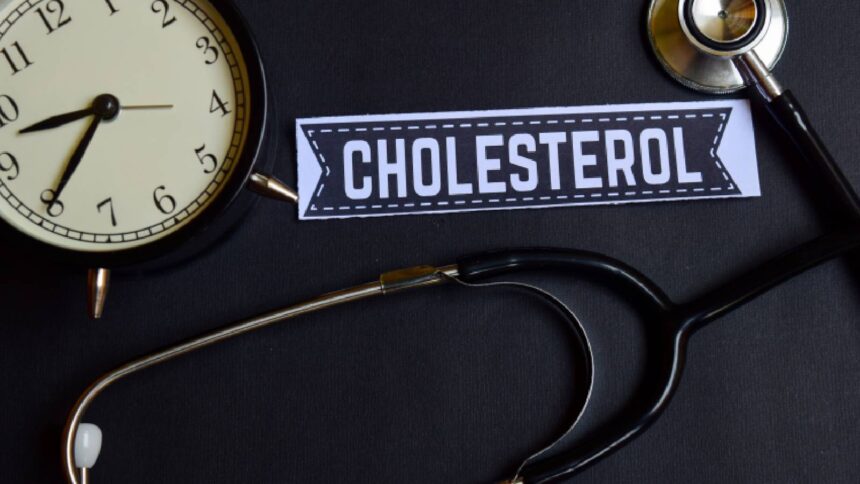Is eating fat the right way to manage cholesterol? It may not be the case. Check out other mistakes you’re making in your quest to keep your level down.
You are taking cholesterol medications, but do you refuse to lower your levels? Bites of deep-fried and ultra-processed foods may seem harmless, but in the long run it may be more harmful than good. Bad diet is one of the most common causes of cholesterol, others are sedentary lifestyle, high stress levels and excessive alcohol consumption. You may think you’re separated from all these factors, but there may still be some mistakes you’re making. This is a quick checklist to check everything you do to keep your levels down.
What is cholesterol?
Cholesterol is a waxy, fat-like substance in the blood that is necessary to build healthy cells, produce hormones, and assist in digestion. “The body naturally produces it, but it can also be obtained from unhealthy foods, which can lead to accumulation of plaque in the arteries. This increases the risk of heart disease and stroke. Health levels can be maintained with exercise, a good diet and an active lifestyle.”

Our body has four types of cholesterol
- LDL or low density lipoprotein: This is known as bad cholesterol. High levels of LDL in the body can accumulate in the arterial wall. This can form plaque and increase the risk of heart disease and stroke.
- HDL or high density lipoprotein: This is a good cholesterol that actually removes excess cholesterol from the bloodstream. Return to the liver for excretion. Excellent levels of HDL help protect against heart disease by preventing plaque buildup.
- VLDL or very low density lipoprotein:This is similar to LDL, but mainly carries triglycerides, which are other types of fats. This can also lead to plaque formation, so you should also check the level of VLDL.
- Triglycerides: These store excess calories in our bodies and provide energy when needed. High triglyceride levels, along with high LDL or low HDL, can increase the risk of heart disease.
Why does cholesterol rise?
There are many reasons for high LDL, including many saturated and trans fats, sedentary lifestyles, obesity, smoking and diets that include heavy drinking. Stress can also increase levels of certain hormones, such as corticosteroids, which can make your body more LDL, the study published by the National Heart, Lung and Blood Research Institute said. “While some people may naturally have higher levels of LDL, conditions like diabetes and hypothyroidism also contribute to the increased levels,” explains Dr. Chirag.
8 Common Cholesterol Mistakes
There are many causes for LDL to rise into our bodies, but some of these can be avoided. Here are some dietary and lifestyle mistakes you need to be aware of:
1. Avoid all fat
Not all fat leads to increased LDL. Make sure to include healthy fats like those found in avocados, nuts and olive oils while cooking your meal to lower your levels. This will help you improve your level. However, reducing trans and saturated fats is important.
2. I only depend on medication
Some people rely solely on drugs without making necessary lifestyle changes and without limiting long-term benefits, explains Dr. Chirag. It is important to use medication in conjunction with a healthy heart diet, exercise and stress management. This improves overall cholesterol control.
3. Bad exercise habits
A sedentary lifestyle increases LDL and reduces HDL in the body. This increases the risk of heart disease. A study published in the Journal BMC also observed that intense physical activity was positively associated with HDL cholesterol. To reduce this risk, you will engage in regular physical activities such as active walking, cycling and swimming every day.
4. Under fiber intake
A low-fiber diet also increases your LDL levels. This is because the fibers help to remove excess cholesterol in the body. To fix this, add fiber-rich food sources to your diet, such as whole grains, fruits, vegetables, and legumes. This also supports heart health in the long term.
5. Skip regular checks
Many people forget to look at levels until a serious condition develops, says Dr. Chirag. However, this is extremely dangerous for cholesterol patients. Performing regular checks and visiting a doctor to manage cholesterol will positively reduce the incidence of any disease.
6. Eating unhealthy fats
Consuming excess saturated and trans fats from deep-fried foods, processed snacks, and lean meat increases your LDL levels. A study published in the Journal Current Atherosclerosis Reports states that saturated fat intake is a major cause of increased LDL. The solution is to replace these unhealthy fats with something good that takes nuts, seeds, olive oil and fatty fish. This helps to raise HDL (good cholesterol) levels.
7. Inadequate stress management
When it comes to cholesterol, stress plays an important role in the acceleration of LDL levels. Therefore, effective stress management is extremely important. Chronic stress can increase cortisol levels, which can contribute to higher levels. Activities such as meditation, yoga, and deep breathing can help reduce stress.
8. Excessive alcohol consumption
Limited amounts of alcohol are still manageable, but drinking too much alcohol can lead to high triglycerides and other heart problems. Alcohol adds additional calories without providing nutrients. Excess weight can lead to higher LDL and lower HDL levels. Therefore, it is best to avoid alcohol whenever possible.

How to reduce cholesterol
High LDL levels are extremely dangerous to the heart, but there are very easy ways to keep your levels down. Consumption of nuts, seeds and olive oil should increase to include healthy fats in your diet. Additionally, it is important to have active walking, cycling, swimming, or moderate-intensity exercise per day for at least 30 minutes for at least 5 days to raise good cholesterol levels in the body. In addition to this, you should stop smoking and avoid excessive alcohol consumption.
One of the main reasons behind people with high LDL levels is the excess weight, especially around the abdomen. Even a small weight loss can help lower your cholesterol levels. Too much stress can lead to unhealthy eating behavior and weight gain, which can change levels. Practice relaxation techniques such as meditation, deep breathing, and yoga. Regular blood tests should be performed to monitor levels. It is important to consult your doctor before making any major lifestyle changes or taking medications.
Related FAQs
How often should I check for cholesterol?
Healthy people recommend checking their cholesterol levels every 4-6 years. However, people with a family history or illness with a high cholesterol level, such as diabetes or blood pressure, should be tested more frequently for cholesterol tests.
What is the best food for cholesterol?
Foods that help lower cholesterol levels are oats, barley, beans, eggplants, okra, nuts, vegetable oils, apples, grapes, strawberries, and other fruits.











